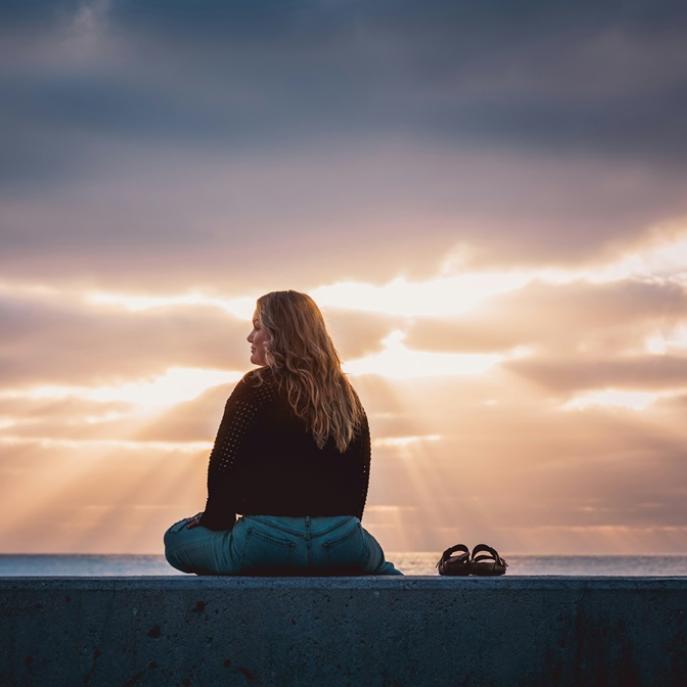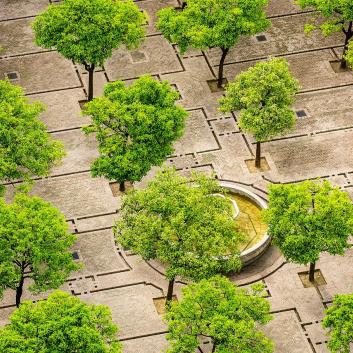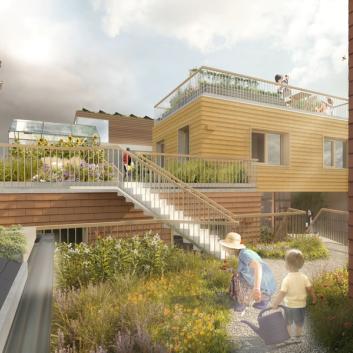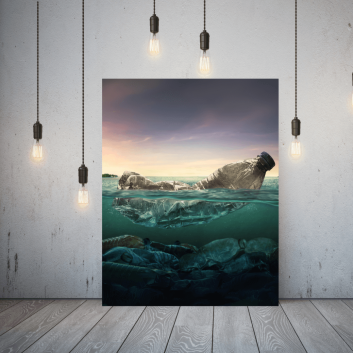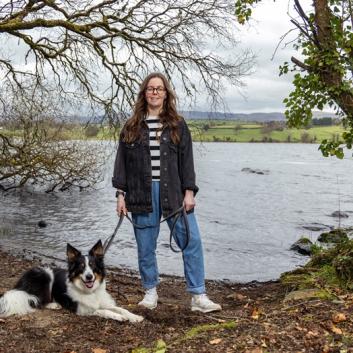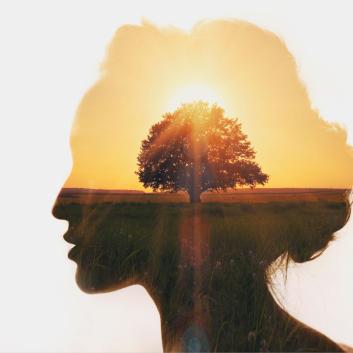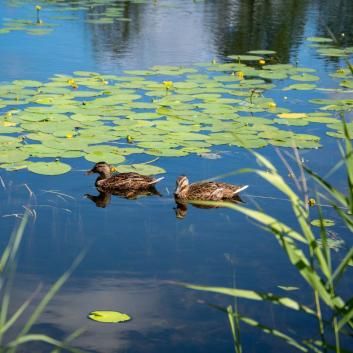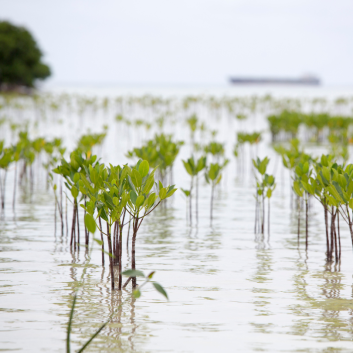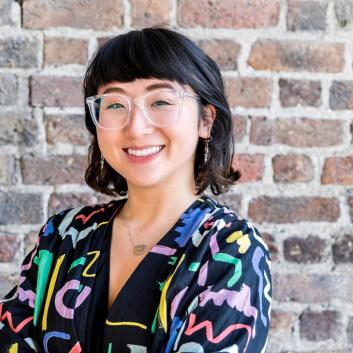The unseen struggle of women holding the line in sustainability
I was a college student studying journalism when I first truly connected with the climate crisis. Growing up, sustainability habits, like recycling and ‘hand-me-down’ clothes and toys, along with a fascination with the outdoors and wildlife, were woven into my daily life.
However, it wasn’t until I stumbled upon a post by The Useless Project (Sustainable Fashion Dublin at the time) that sustainability took on a much more personal meaning to me.
The curtain was officially pulled down on the fashion industry, and I learned that behind the low prices and mass production were women working in unsafe, exploitative conditions.
It hit me deeply, and it was the first time I truly understood that sustainability was more than just the environment; it encompassed justice and equity, too.
As I continued learning more, I recognised how climate change disproportionately affects women, so the mission to work in this field became more personal and sharpened my sense of purpose.
Having worked as a sustainability journalist and since stepping into the corporate space where my company, the Institute of Sustainability Studies (ISS), is helping close the green skills gap across organisations, I’ve spoken to many people, particularly women, and I’ve come to realise just how common this emotional connection to climate is.
These women - founders, consultants, and leaders - feel that same sense of responsibility to fight for justice for our own.
This piece is a reflection of this reality, bringing together the voices of women holding the line in sustainability.
Sustainability isn’t just strategy; it’s personal
Across the interviews I’ve conducted for this piece, a common thread has emerged: sustainability isn’t just work, it’s identity, values, and purpose.
Michele Hallahan, a Senior Sustainability Consultant and Faculty Member at the ISS, describes how she had to take more than a year off from university teaching due to the mental toll of “trying to make more of a difference.”
For her, boundaries between personal and professional don’t exist when it comes to caring for the planet.
She explains: “Psychopaths can do this with ease. But for me, sustainability work NEEDS people who bring their love, compassion, concern, and care to the job.”
Similarly, Pat Kane, founder of reuzi and Faculty Member at ISS, shares:
“As nurturers by nature, we often feel a strong personal responsibility for the well-being of both people and the planet.”
This connection is powerful, but it comes at a cost.

Proving their place over and over again
The path to influence in sustainability is often littered with scepticism and bias, particularly for women.
Nazia Husain, Product Manager at ISS, highlights how she faced resistance to her ideas early in her career because sustainability wasn’t seen as a business imperative.
She reflects:
“I learned to frame sustainability in terms of risk mitigation and operational efficiency to gain buy-in.”
For Michele Hallahan, gender bias was stark: “If I had been born into the body of a man, I would have been taken seriously, at face value.”
And while progress has been made, particularly with more women in decision-making roles, this undercurrent persists.
Kate Williams, CEO of Bold Donut and avocate for gamifiaction as an effective tool to adopt sustainability practices, echoes a different but familiar challenge - legitimacy.
She says:
“In the early days, I was often asked to justify my credentials. It wasn’t until I framed my entire career, not just the sustainability part, that I began to be taken seriously.”

The strain of caring too much
The emotional toll is particularly heavy because the stakes are so high.
Climate change isn’t an abstract concept, it’s an existential threat. For many women working on the frontlines of climate action, the pace of change is maddeningly slow.
Sarah Blake, Director at Earthology and Faculty Member at ISS, points to the importance of “actionable, incremental progress” as a way to stay grounded.
Her integration of the Inner Development Goals helps her cultivate resilience and set boundaries as she highlights that “The Great Turning is a process, and we all play a part”.
Still, burnout is a common experience. Diana Kessler, Digital Marketing Manager at Techies Go Green, notes that bringing her work into every dinner conversation made her realise how all-consuming the job had become.
She explains:
“Once you start to fear that certain actions discredit your identity as someone who cares about climate change, it can go downhill.”
Setting boundaries - or trying to
Pat describes boundary-setting as a “daily practice” rather than a perfect system.
She now assesses how much emotional energy she’s investing and relies on peers and hobbies to stay balanced.
Boundaries are a recurring topic, but one that many admit they’re still learning to navigate.
Nazia candidly shares:
“Passion for sustainability makes it easy to blur the lines. But setting clear boundaries is essential for longevity.”

For entrepreneurs like Kate Williams, who co-founded a sustainability business with her partner, the risk of mission creep into personal life is real.
She shares: “At the beginning, we had no boundaries. Now, we only talk business off-hours if both of us are up for it.”
Building community, finding resilience
Whether through yoga, running, peer networks, or climate dinners, every woman interviewed spoke of the necessity of finding community.
Sarah Blake turns to nature and peer-led communities like Deep Time Walks and the Inner Development Goals.
Pat Kane draws inspiration from a long list of supportive women in sustainability, from entrepreneurs to wellness leaders.
Diana Kessler champions volunteerism as both support and perspective. She says: “The An Taisce Climate Ambassador programme was incredibly motivating, and networking groups like Women and Climate provide so much energy.”
Advice from the frontlines
What would these leaders say to those just entering the field?
“Pace yourself. Celebrate small wins. Change is layered—every contribution matters”,
says Nazia Husain.
“Set firm boundaries, and say no to free work - your contribution has value”,
Pat Kane advises.
Kate Williams adds:
“Don’t drown in doom and gloom. If bad news compounds your stress, seek out stories of progress. They exist.”
Diana Kessler offers a final note of empowerment:
“Combine passions. Climate doesn’t have to be your only motivator. Find joy in what you do.”
The women driving sustainability forward are doing more than transforming business practices; they’re redefining leadership.
Their stories show the profound emotional labour involved in systems change.
However, they also reveal a new model of leadership: one that is empathetic, collaborative, and unapologetically human.
In a world that demands transformation, their ability to hold space for grief, joy, burnout, and breakthroughs is not a weakness but a strength.






